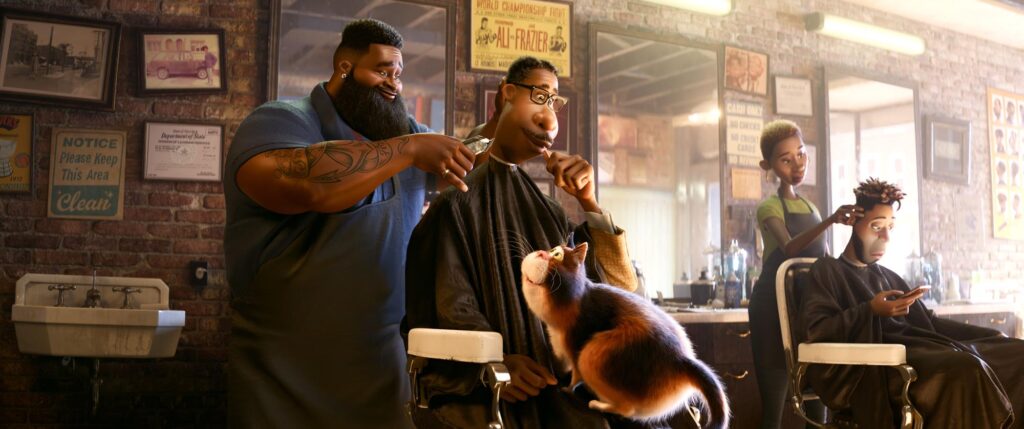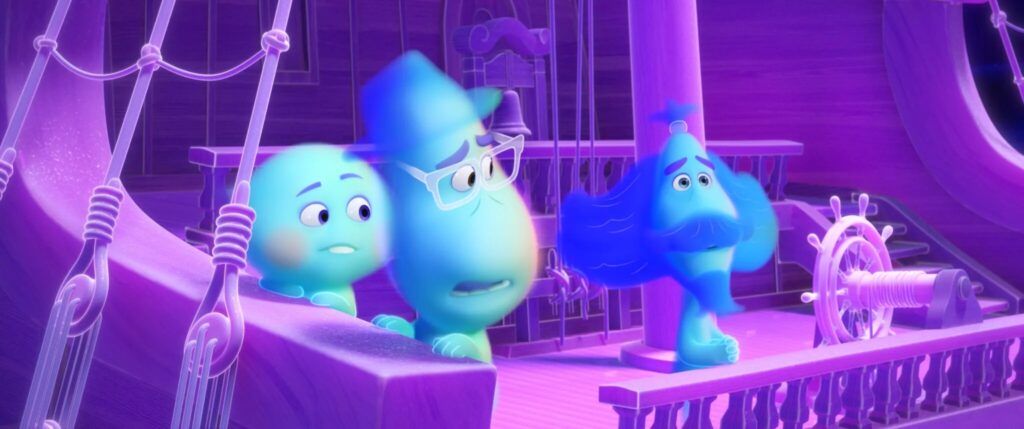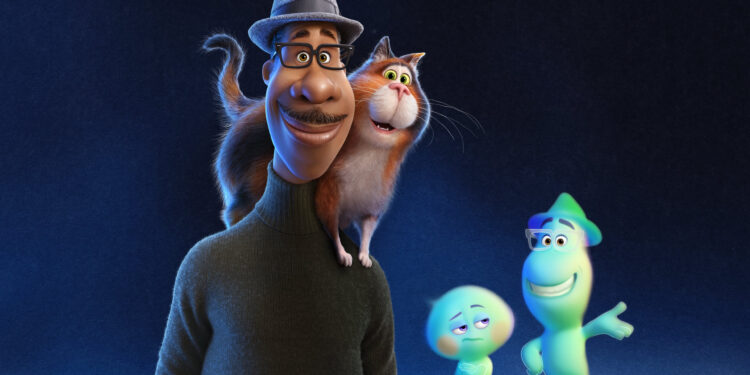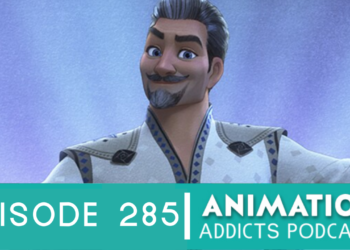Animation is not strictly for kids. This is a truth that acclaimed Pixar director Pete Doctor has proven time and time again. From his dive into the human physique with Inside Out to the opening montage of Up. One could argue that he’s made Pixar the gold standard for “general entertainment.” His latest feature, Soul, is perhaps his most existential and thought-provoking film to date. Tackling themes of life and death, the film deserves praise for its boldness. But, is a mature subject matter enough to deem Soul a ‘great film’?
Soul tells the story of Joe Gardner (Jamie Foxx), a middle school band teacher who is dissatisfied with his life. The only way to fix it? Become a professional musician. On the eve of his big break, Joe dies a sudden death and reawakens as a soul bound for the “Great Beyond,” or in laymen’s terms, the afterlife. Determined to resurrect himself and live his dream, Joe finds himself in the “Great Before” and embarks on an abstract adventure to reunite with his body, with the aid of a life-hating soul called 22 (Tina Fey).

As is Pixar tradition, Soul asks a question (in this case, “What is the meaning of life?”) and answers with a fantastical adventure and strikingly ingenious imagery. Often in media, the afterlife is depicted as either a golden-gated utopia or a horrific hellscape. Soul’s afterlife is a minimalistic environment inhabited by simple shapes and soft colors. The caretakers of this metaphysical realm are composed of flat lines and behave more like an elementary school staff than deities. With this angle, Pixar created a transcendental world that, while ominous in implication, is whimsical and inviting. This duality works well with Soul’s tone, allowing for an abundance of comedy without undermining the somber nature of the film’s thesis.
But the transcendental world is only half of Soul; the other half takes place in New York City, home to Joe, his family, friends, and neighbors. As a black New Yorker, Soul’s depiction of a black community is fantastic, from the varied physical appearances to the snappy banter amongst associates. Soul’s take on getting a haircut was particularly pleasant, as it perfectly evoked the communal atmosphere of a local barbershop. But it doesn’t stop there. The city is a cultural melting pot. Doctors, the school principal, the average person on the street—all different races and groups. This is both an accurate representation of New York City and does well to normalize diverse casts in animated films.

But what’s a setting without its inhabitants? Jamie Foxx delivers a nuanced performance as Joe Gardner, imbuing the character with a youthful innocence but also a hint of misguided zealousness. He’s not as sympathetic as Finding Nemo’s Marlin or as entertaining as Ratatouille’s Remy but a decent lead nonetheless. Angela Basset is appropriately commanding as Joe’s idol, Dorothea Williams, while Phylicia Rashad bleeds believability into Joe’s imperfect yet well-meaning mother Libba. Some other standouts were Rachel House as the pompous “soul counter” Terry and Graham Norton as the sign twirler Moonwind. None of these characters are particularly memorable, but they are serviceable.
The core of Soul is its universal message about life’s purpose and what constitutes a successful existence. You can easily guess the lesson by watching the trailers, and it becomes even more obvious within the first few minutes of the movie. But its predictability does nothing to diminish its importance. Soul challenges what we value and highlights the significance of “the little things.” It even warns of the ramifications we risk should we become too obsessed with our ambitions. Following your dreams is important; Soul agrees with that. But you can also find happiness and fulfillment in something as simple as a good meal and a friendly conversation. This is something we should all strive to remember.
Unfortunately, none of this can make up for Soul’s greatest issue: the plot. While an examination of the human soul makes for a fascinating premise, it’s bogged down by an unfocused narrative that can’t decide what it wants to be. To put it plainly, Soul’s second and third acts are all over the place. One minute it’s a talking animal movie; the next it’s a body-swapping movie, and it all left me scratching my head wondering, “How did we get here?” And the rest of the movie suffered for this. Joe and 22’s personal journeys were so sloppily constructed that I didn’t care about what happened to either of them. If nothing else, I was just curious to see how the movie would resolve itself after making so many questionable decisions. That made the bulk of this movie rather boring to watch. Yes, the message of Soul is profound. I’d go so far as to call it inspiring on a surface level. But a strong message means little if not executed well.

But the problems continue. 22 had their cute moments, but the character was a touch too generic and grating for my liking. The snarky, constantly smirking co-lead trope has been criminally overused in Disney’s recent animations. It’s gotten old, and it’s gotten predictable. It doesn’t help that the relationship between 22 and Joe is practically nonexistent. They learn from one another more by observing each other than they do from actually interacting. By the end of the movie, I couldn’t fathom why Joe would feel any sort of empathy towards 22 besides being mandated by the plot. Keeping with 22’s style of comedy, this movie has an obsession with cutaway gags. One or two can be funny, but five in succession becomes exhausting and feels like it’s constantly halting the movie for a weak joke.
Lastly, there’s the elephant in the room. Soul is the latest addition to the growing list of animated films with black leads that transform into animals and creatures—following such films as The Princess and the Frog and Spies in Disguise. For Soul, the issue is somewhat mediated as we spend a large chunk of the movie in Joe’s world, interacting with his human family and neighbors. But it doesn’t change that Joe is hardly ever himself. And this controversial trope is made even more glaring with Joe being Pixar’s first black protagonist. There are so few black leads in animated films as it is; the least you can do is keep them human.
And that’s Pixar’s Soul. Is it a great movie? Far from it. Will it go down as a Pixar classic? Not by my estimation. It makes for an okay one-time viewing in a year devoid of new movies. And Soul’s message about appreciating life for all its worth is one we can all learn from. It’s just a shame that the plot was so mismanaged.
Soul is streaming now on Disney+.
What did you think of Pixar’s Soul? Tell us your thoughts in the comments below!
Edited by: Kelly Conley







